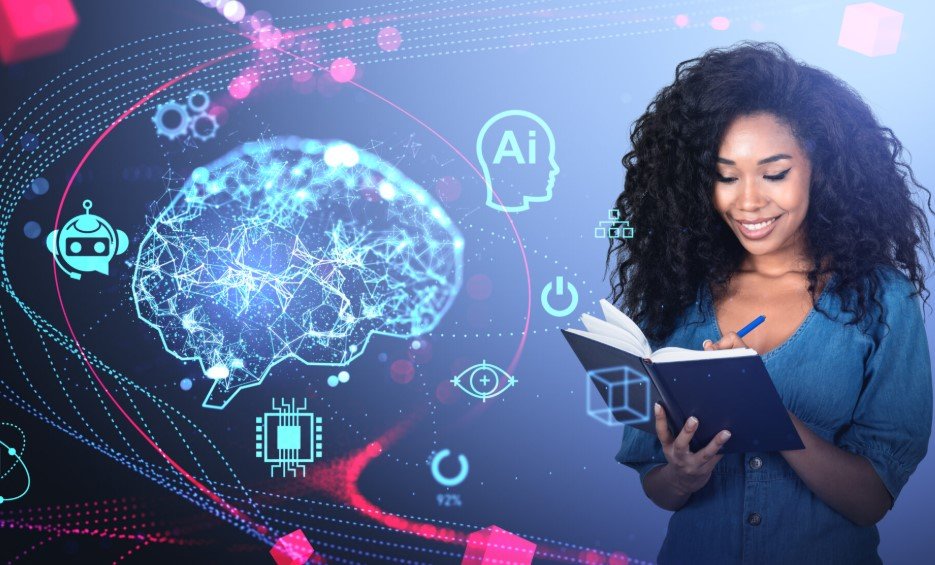Artificial intelligence continues to transform jobs and industries worldwide, prompting major players like Google, Harvard, IBM, and Microsoft to offer free courses that help people build essential skills. As of August 2025, these programs provide accessible ways for beginners and professionals to learn AI basics, machine learning, and generative tools without any cost, addressing the growing demand for tech-savvy talent amid rapid advancements.
Why AI Skills Matter More Than Ever
The job market has shifted dramatically in recent years. Reports show that AI-related roles have grown by over 70 percent since 2020, with companies seeking workers who can use these technologies to boost efficiency.
This surge ties into broader trends, such as the integration of AI in everyday tools like chatbots and predictive analytics. For instance, recent events like the launch of advanced AI models in 2025 have automated tasks in sectors from healthcare to marketing, making upskilling crucial to avoid falling behind.
Many experts predict that by 2030, AI could contribute trillions to the global economy, creating new opportunities but also displacing routine jobs. Free courses from trusted sources bridge this gap, offering practical knowledge that aligns with current industry needs.
Learning AI now equips individuals with tools to collaborate with machines, solve complex problems, and open doors to high-paying careers. Whether you work in finance or creative fields, these skills enhance productivity and innovation.

Google’s Free AI Offerings for Beginners
Google leads the pack with user-friendly courses designed for all levels. Their programs focus on practical applications, helping learners integrate AI into daily work.
One standout is the Google AI Essentials course, which teaches core concepts like prompt engineering and ethical AI use. It takes about 10 hours to complete and includes hands-on projects.
Google also provides specialized tracks on generative AI through their Cloud Skills Boost platform. These cover topics from image generation to natural language processing, reflecting the latest trends in 2025.
Participants gain certificates that boost resumes, and many report improved job prospects after finishing. With no prerequisites, these courses suit students and mid-career switchers alike.
Harvard’s In-Depth AI Programs
Harvard University brings academic rigor to free AI education, making complex ideas approachable. Their courses emphasize foundational knowledge with real-world examples.
The Introduction to Artificial Intelligence with Python stands out, exploring algorithms and machine learning through coding exercises. It spans seven weeks and attracts over a million enrollees globally.
Harvard’s offerings often include video lectures from top professors, fostering a deeper understanding of AI ethics and societal impacts. This aligns with recent discussions on responsible AI development in 2025.
Learners appreciate the self-paced format, which allows balancing studies with work. Completing these courses provides a prestigious credential that signals expertise to employers.
Another key program dives into data science basics, linking AI with analytics for broader applications.
Many users share success stories of landing tech roles after Harvard’s training, highlighting its practical value.
IBM’s Practical AI Fundamentals
IBM focuses on enterprise-level AI, offering courses that blend theory with business applications. Their free programs target those aiming to apply AI in professional settings.
The AI Fundamentals course covers key areas like neural networks and AI in decision-making. It includes interactive labs and takes around six hours, earning high ratings for clarity.
IBM’s Watson AI series introduces tools for building chatbots and predictive models, updated for 2025 advancements in cloud computing.
These courses come with free certificates, valuable for career advancement. Professionals in IT and business find them especially useful for staying competitive.
IBM emphasizes ethical considerations, addressing current concerns about AI bias in recent industry reports.
Enrollees often note how these skills directly improve workflow efficiency.
A growing number of participants use IBM’s resources to pivot into AI consulting roles.
Microsoft’s AI Tools and Training
Microsoft integrates AI with its popular software ecosystem, providing free courses that enhance productivity tools like Azure and Power BI.
Their AI Fundamentals certification path teaches basics of machine learning and computer vision, with modules updated for 2025.
Microsoft’s offerings include generative AI courses, focusing on creating content with tools like Copilot. These are ideal for creative professionals.
The self-paced format allows flexible learning, and completers receive badges shareable on LinkedIn.
Recent integrations with Windows updates in 2025 make these skills timely for everyday users.
Many learners apply the knowledge to automate tasks, saving time in various jobs.
Comparing the Top Free AI Courses
To help you choose, here’s a quick comparison of key features from these providers:
| Provider | Course Example | Duration | Key Focus | Certificate |
|---|---|---|---|---|
| AI Essentials | 10 hours | Practical AI use | Yes | |
| Harvard | Intro to AI with Python | 7 weeks | Coding and algorithms | Yes |
| IBM | AI Fundamentals | 6 hours | Business applications | Yes |
| Microsoft | AI Fundamentals | Varies | Tools integration | Yes |
This table highlights differences in length and emphasis, making it easier to pick based on your goals.
How to Get Started and Maximize Benefits
Starting is simple: visit the official platforms like Coursera, edX, or the companies’ learning sites to enroll. No fees apply, and most require just an email signup.
- Dedicate consistent time each week to complete modules.
- Engage in forums for community support and networking.
- Apply concepts through personal projects to reinforce learning.
- Track progress with built-in quizzes and share certificates on professional networks.
These steps ensure you gain real value. Recent surveys show that 85 percent of learners feel more confident in AI after such courses.
By combining multiple programs, you build a well-rounded skill set tailored to 2025’s job demands.
The emotional boost from mastering AI reduces anxiety about tech changes, while practically, it opens doors to promotions or new roles.
We encourage you to share this article with friends exploring AI and comment below on which course you plan to try first. Your experiences could inspire others.







